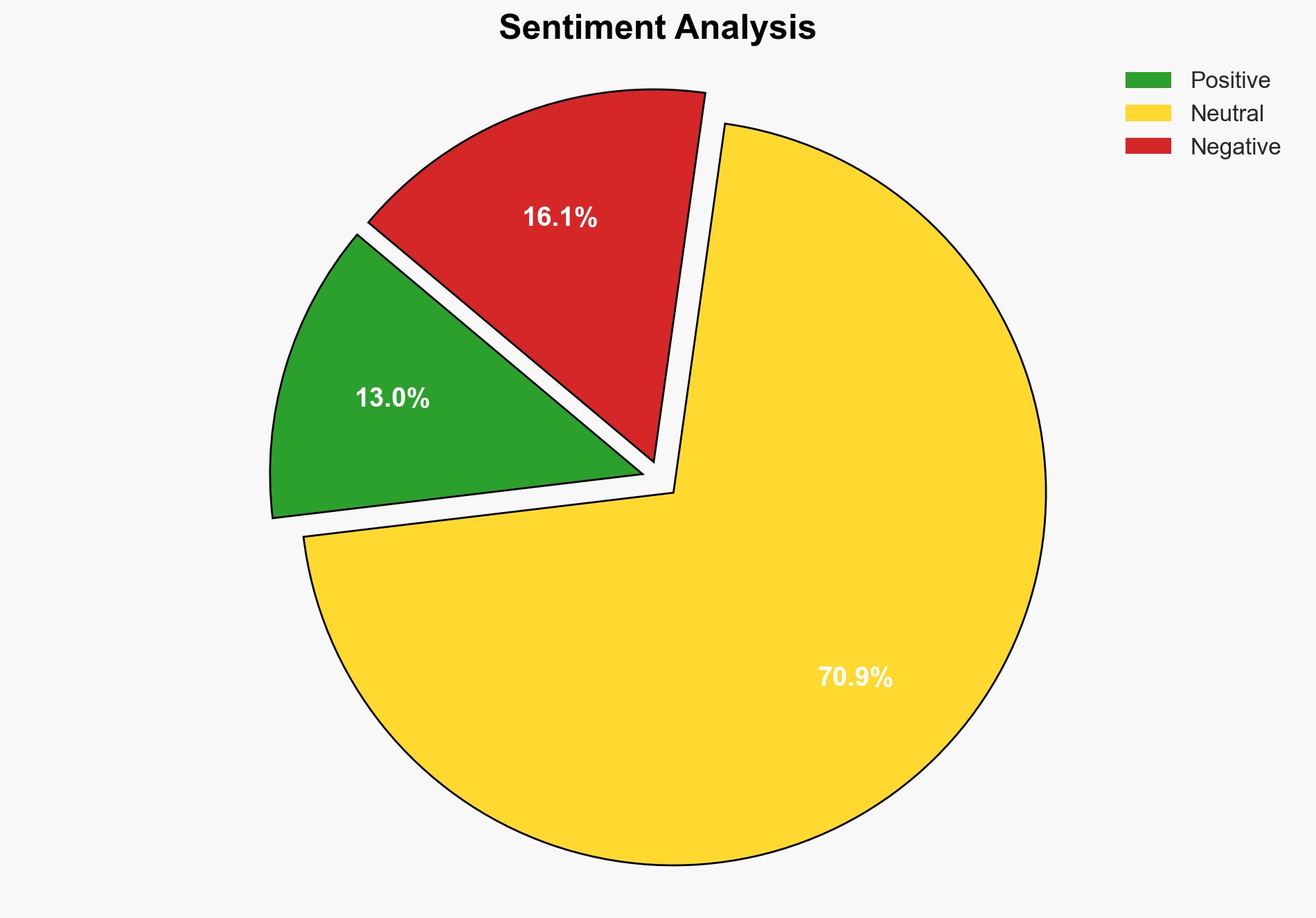EU condemns alleged sabotage of Taiwan’s undersea cables – Globalsecurity.org
Published on: 2025-03-01
Intelligence Report: EU condemns alleged sabotage of Taiwan’s undersea cables – Globalsecurity.org
1. BLUF (Bottom Line Up Front)
The European Union has condemned the alleged sabotage of Taiwan’s undersea cables, reportedly damaged by a vessel linked to China. This incident highlights vulnerabilities in critical infrastructure and underscores the need for international cooperation to enhance cable resilience. The EU emphasizes maintaining the status quo in the Taiwan Strait and calls for restraint to prevent escalation.
2. Detailed Analysis
The following structured analytic techniques have been applied for this analysis:
SWOT Analysis
Strengths: The EU’s proactive stance on critical infrastructure protection and its commitment to international partnerships.
Weaknesses: Vulnerability of undersea cables to sabotage, highlighting gaps in security measures.
Opportunities: Strengthening global partnerships to enhance resilience and security of critical infrastructure.
Threats: Potential escalation of tensions in the Taiwan Strait, impacting regional stability and international trade.
Cross-Impact Matrix
The alleged sabotage could influence regional security dynamics, potentially affecting EU-China relations and prompting increased security measures in neighboring areas. The incident may also lead to heightened tensions between Taiwan and China, impacting cross-strait relations.
Scenario Generation
Best-Case Scenario: International collaboration leads to enhanced security measures, preventing further incidents and maintaining regional stability.
Worst-Case Scenario: Escalation of tensions results in military confrontations, disrupting regional trade and global supply chains.
Most Likely Scenario: Diplomatic efforts lead to increased dialogue and cooperation, mitigating immediate risks while addressing long-term security concerns.
3. Implications and Strategic Risks
The incident poses significant risks to regional stability and international economic interests. Disruption of undersea cables can impact global communications and trade. The potential for increased tensions between Taiwan and China may lead to broader geopolitical instability, affecting national security and economic growth in the region.
4. Recommendations and Outlook
Recommendations:
- Enhance international cooperation to improve the security and resilience of undersea cables.
- Implement advanced monitoring and detection technologies to prevent and respond to sabotage attempts.
- Encourage diplomatic dialogue to de-escalate tensions in the Taiwan Strait.
Outlook:
Best-Case: Strengthened international partnerships lead to improved infrastructure security and regional stability.
Worst-Case: Continued tensions result in further incidents, negatively impacting global trade and security.
Most Likely: Ongoing diplomatic efforts and technological advancements mitigate immediate threats, fostering a stable environment.
5. Key Individuals and Entities
The report mentions significant individuals and organizations involved in the incident and subsequent responses:
- Henna Virkkunen
- Tien Hsi
- Ju Kay Liu
- Chunghwa Telecom




